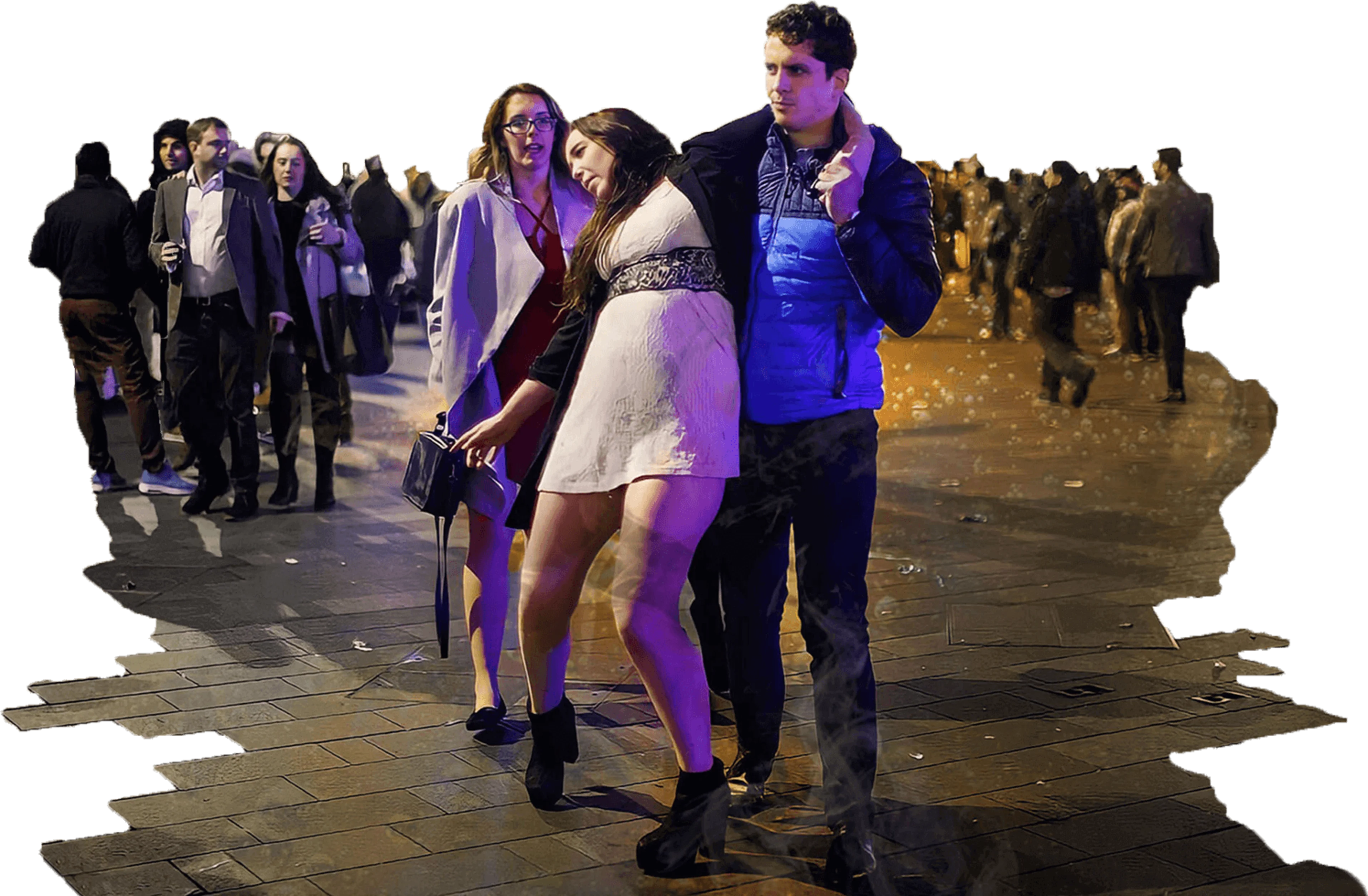It’s not just the Met – why do police keep getting it wrong?
30 March 2023

30 March 2023

The past few weeks have seen a swarm of headlines surrounding the Metropolitan Police’s numerous failings, which were finally revealed in Baroness Louise Casey’s report into the force on 21st March. Commissioned following the abduction, assault and murder of Sarah Everard by a serving police officer, Casey described the Met as institutionally racist (arguably we knew this 20 years ago, thanks to the Macpherson Report), institutionally misogynistic (we could infer this from the photos taken of the murdered sisters, Bibaa Henry and Nicole Smallman, and shared in a police WhatsApp group, in 2021) and institutionally homophobic (highlighted by the Met’s contribution to the deaths of 3 gay men at the hands of killer Stephen Port).
If you keep up with the news, the widely-shared summary of the report’s findings will likely not have come as a huge surprise. But what did make it shocking was the individual case studies which Baroness Casey encountered in her year-long investigation – and those which have emerged since. A police officer openly masturbating on a train, in front of an elderly couple and then a group of children. Freezers containing rape kits overflowing, ruining DNA evidence and preventing prosecution (to the extent that sexual crimes are considered decriminalised by some). A young woman asking an officer for directions during the Notting Hill carnival, only to be forced into giving him her phone number and enduring a subsequent year-long barrage of calls and WhatsApp messages.
This is not the baseline creepiness which women are regularly exposed to. It’s a holistic attack on anyone who cannot, or will not, conform to the Met’s vision of its own superiority. But I argue that Casey’s findings are just the tip of the iceberg – if the Met is among the best police forces in the world, then surely people across the UK are suffering the same consequences of systemic ignorance and discrimination too?
Norfolk police were in the news recently for the multiple misconduct charges facing its officers. It seems that when London sneezes, England catches a cold.
This is something which I have dealt with first-hand. I was age 10 when I was allowed to walk to a dance class, alone, for the very first time. I enjoyed the 5-minute walk to my friend’s house, picking him up for the remaining few minutes of the sunny journey. We were both chatting happily, hands clasped around our Nokia bricks, when a voice came from a car. “Do you know where the nearest ice cream shop is?”, a man asked, “can you get in and show us?”.
I immediately started running towards our destination, which was just across the road. Nothing resembling an ice cream shop was remotely near us. The men drove off, laughing and swearing and, gasping between tears, I asked someone I knew to call the police for me. Our parents arrived and sat with us as we waited for their arrival, which we’d assumed would be prompt considering that two men in a rather sleepy area had just attempted to abduct us. We were wrong – the police rang back to say that they’d visit tomorrow, they were too busy with a burglary. Later, they insisted that we – two 10-year-olds – should have rung 999 rather than the non-emergency 101 line.
I’m not telling this story to illustrate an unfortunate experience I had as a child, but rather to highlight the long-lasting impacts that even the most minor of police failings can have. The police officer did indeed show up the following evening, after a day at school where me and my friend had been forced to recount the previous day to the entire school in assembly. We had become cautionary tales, but also success stories. Other parents felt sorry for us, but also speculated openly in the playground that the men were probably just drunk or high.
He, a middle-aged man who I recognised as a distant friend’s dad, arrived in full uniform and took my statement in our living room, his radio buzzing distractingly throughout the interview. He pushed me for details, memorably the make and model of the accused’s car. As a 10-year-old, and still as a 20-year-old, I had little knowledge of cars and was worried that I was still in danger. The officer told me that, if this were to happen again – an eventuality which I hadn’t considered and did little to make me feel safe – then I should really take a photo of the man and his number plate. After this brief lecture, I never heard from the officer, or anyone from Norfolk Constabulary, again.
It wasn’t until years later, and 5 years of undiagnosed PTSD, that I realised how poorly I had been treated by those that were meant to protect me. Seeing the growing shock on my counsellor’s face when I recounted the school and police’s actions told me that this wasn’t normal. It also suggested that maybe one man’s actions weren’t my fault.
I was told that a female police officer should have come to the scene immediately to speak with me, and that maybe a Kevlar vest with a baton attached to it wasn’t appropriate attire for addressing a young girl in her home. I was congratulated, finally, for doing exactly the right thing. I should have received pastoral care, regular updates from the officer, rather than radio silence and snippets of speculation from nosey mums. I should never have seen my kidnapper at local events or in the school playground, as I did on multiple occasions.
For me, this is what repeated institutional failings look like. It’s what happens when government-run organisations, with a duty of care, are unable to protect those who need their help. So why is Sir Mark Rowley, and many others, so reluctant to label the Met’s failings as ‘institutional’?

‘Institutional’ simply means anything ‘relating to an institution’ and, as such, does not immediately come across as a contentious term. In the context of persistent racism, misogyny, or homophobia though, blame is placed within the processes, organisations and structures in which inequality is embedded. This does not mean that every police officer is racist, sexist, or homophobic – far from it. But it does mean that every officer, detective and inspector has to look beyond their own actions and ask how they exist in a system which both enables and conceals appalling behaviour.
Such clarity may be unlikely, with Essex Police putting out this call for us to ‘all fully embrace equity’ this International Women’s Day, even as one of its (serving) police officers was being investigated for assaulting a child at a party. Therefore, I believe that the Met police’s failings are a microcosm of policing across the UK. Added to its lengthy list of failings, the force could be considered adultist too.
My own experience of failing to receive adequate support as a child pails in comparison to the trauma endured by Child Q. A Black schoolgirl, Child Q was strip-searched at school, without an appropriate adult present, whilst on her period, during an exam. In astounding cases like these, it’s easy to criticise the country’s largest police force, but we mustn’t lose sight of how these issues are mirrored across the UK. Norfolk police were in the news last October for failing to tell victims about the status of their cases, and more recently for the multiple misconduct charges facing its officers. It seems that when London sneezes, England catches a cold.
I don’t know. Some, including Baroness Casey, have mentioned the possibility of disbanding or reshaping the Met, although it remains a last resort and Casey blames past commissioners, rather than Sir Mark Rowley, for the current state of affairs. Before we call for the police to be defunded, disarmed, or dispersed, viable and practical alternatives must be in place. Whatever happens, progress and change will likely be slow, as will the restoration of public trust in the police across the British Isles. Some forces and their officers keep getting it wrong because they cannot perceive a victim’s pain and suffering. It is, after all, much easier to hold oneself aloft as privileged, reliable, and law-abiding. But no one is perfect, or immune from scrutiny, and the act is up for the Met.
I have healed and forgiven, but I ask myself that if the same thing happened to me today, would I bother reporting it to the police? The answer: no.
Written by
Eleanor LuxtonEleanor Luxton is an undergraduate geographer at Oxford University. She’s currently working as a news and sports editor at The Oxford Student.
Read next
Your class still matters, and criminal justice shows it.

Sasha Lyon
"Lad Banter" Where do we draw the line?

Lauren Chadwick
Let’s call last orders on boozed-up Britain

Robert McCarthy
Weekly emails
Get more from Eleanor
The Fledger was born out of a deep-seated belief in the power of young voices. Get relevant views on topics you care about direct to your inbox each week.
Write at The Fledger
Disagree with Eleanor?
Have an article in mind? The Fledger is open to voices from all backgrounds. Get in touch and give your words flight.
Write the Contrast